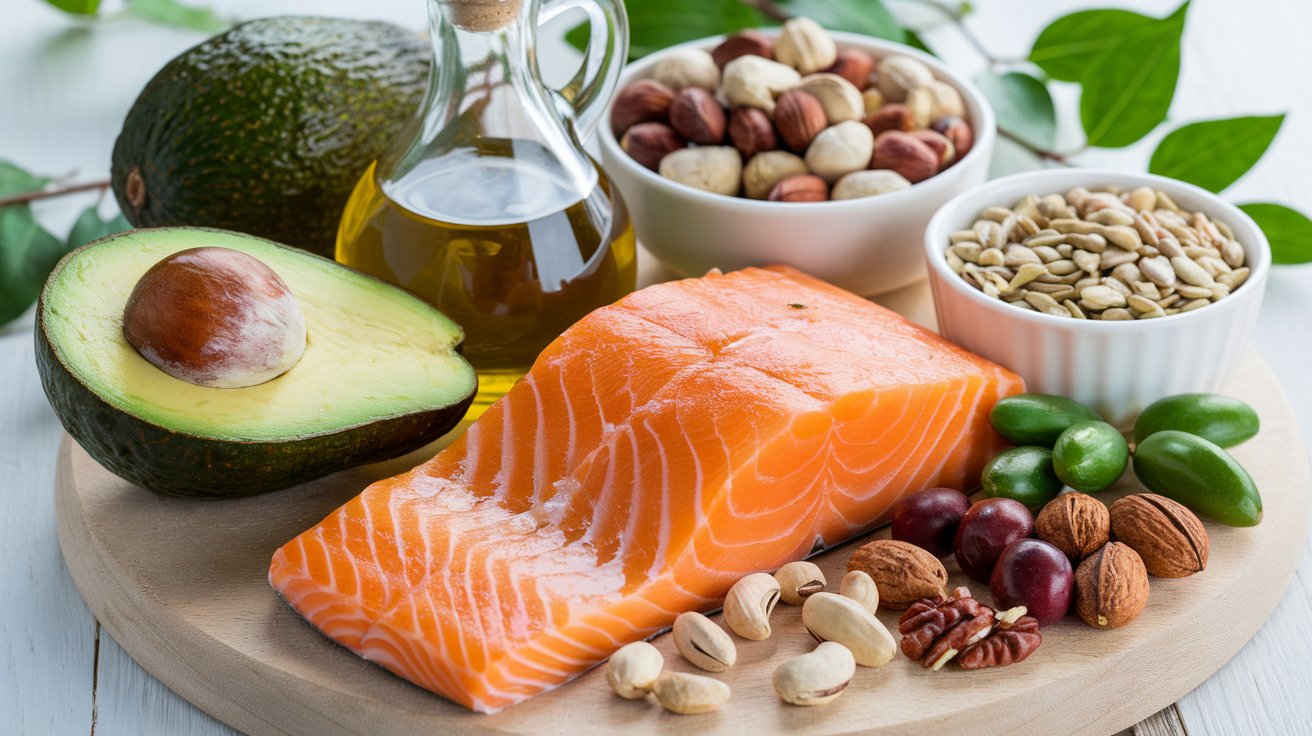Many of us have found ourselves sitting with friends, feeling the slightest bit judged over a latte order with whole milk or a preference for butter on toast. We’ve all been there, enduring those quick remarks about fat’s alleged unhealthy nature. But how grounded are these warnings in reality? Is it time to reevaluate our beliefs about dietary fats and how they affect our health?
The truth is, while some fats are indeed unhealthy, others play crucial roles in the body and can contribute to a healthier lifestyle. Certain fats, like those found in avocados, nuts, and seeds, even help reduce the risk of severe conditions such as heart disease. This article unpacks the types of fats, their impact on health, and the best ways to incorporate them into our diets.
Understanding Fats: Essential for Life or Health Hazard?

Fats, scientifically known as lipids, are organic compounds essential for multiple bodily functions. Fats assist in energy storage, protect organs, and are integral to the absorption of fat-soluble vitamins such as A, D, E, and K. Rather than a simple “good vs. bad” dichotomy, fats range from essential nutrients to types best consumed in moderation. Here, we delve into why fats are not all created equal and highlight how certain fats can promote overall wellness.
Why Do Fats Have a Negative Reputation?
For years, fats have been stigmatized largely because of the association between high-fat diets and weight gain. Beginning in the mid-20th century, several health campaigns promoted low-fat diets, cautioning people that fats, especially saturated and trans fats, could lead to cardiovascular diseases. However, modern research has proven that this one-size-fits-all approach may be misleading. Certain fats benefit health, while others can be problematic. Understanding this distinction is essential for making informed dietary choices.
The Healthy Fats: Nutrient-Rich and Essential
When discussing fats that contribute positively to health, we typically refer to unsaturated fats, specifically monounsaturated and polyunsaturated fats.
Monounsaturated Fats
Monounsaturated fats, found in sources such as olive oil, avocados, and various nuts, are known to lower LDL cholesterol, commonly termed “bad cholesterol.” LDL cholesterol can contribute to arterial plaque buildup, which, in turn, increases the risk of heart disease. Replacing saturated fats with monounsaturated fats can help manage cholesterol levels and reduce inflammation, supporting long-term heart health.
Polyunsaturated Fats and Omega Fatty Acids
Polyunsaturated fats encompass omega-3 and omega-6 fatty acids, essential fats the body cannot synthesize independently. Omega-3 fats, found in fatty fish (like salmon), flaxseeds, and walnuts, have profound anti-inflammatory properties. These fats have been linked to a reduced risk of heart disease, improved cognitive health, and a lowered likelihood of chronic conditions such as dementia and Alzheimer’s. Know more: https://theaspectratio.in/health-fitness/5-nuts-and-seeds-to-help-control-blood-sugar-levels/
Omega-6 fats, commonly found in vegetable oils, nuts, and seeds, also play a role in reducing LDL cholesterol when consumed in moderation. However, it is vital to maintain a balanced intake of omega-3 and omega-6 fats, as excessive omega-6 intake can lead to increased inflammation in the body.
Benefits of Including Healthy Fats in Your Diet
Incorporating healthy fats into your diet can offer various advantages, including:
- Enhanced Satiety: Fats are calorie-dense, which helps us feel fuller longer, curbing excessive snacking or overeating.
- Improved Absorption of Nutrients: Fats are necessary for absorbing vitamins such as A, D, E, and K.
- Hormonal Health: Fats are crucial for maintaining hormonal balance, especially in reproductive health.
- Temperature Regulation: Fats assist in regulating body temperature, contributing to overall comfort and bodily function.
The Types of Fats to Limit
Not all fats have the same health benefits, and certain types should be consumed with caution. Among these are saturated fats and trans fats, both of which are linked to an increased risk of heart disease when eaten in excess.
Saturated Fats
Saturated fats, often found in animal products such as fatty cuts of meat, butter, and full-fat dairy, as well as in plant oils like coconut oil, can raise LDL cholesterol levels. While some studies suggest that not all saturated fats have the same adverse effects, the general recommendation is to limit saturated fat intake to under 10% of total daily calories. Moderation here is key; occasional consumption may be harmless, but frequent intake can contribute to cholesterol buildup in arteries, leading to health complications over time.
Trans Fats
Trans fats are particularly harmful to health and are commonly found in processed and packaged foods. Although these fats have been largely banned in the United States, they may still be present in small amounts in some food products. Trans fats not only increase LDL cholesterol but also lower HDL cholesterol, commonly known as “good cholesterol.” This combination can severely impact heart health, so it is advisable to avoid trans fats altogether.
Recommended Daily Fat Intake
So, how much fat should we ideally consume? Dietitians recommend that approximately 20-35% of daily caloric intake come from fats, prioritizing healthy unsaturated fats. For instance, in a 2,000-calorie diet, this translates to about 44 to 78 grams of total fat per day. While this range accommodates individual preferences, health goals, and specific needs, keeping fat intake moderate while focusing on quality is the best approach.
For those aiming to manage weight, it’s also helpful to consider that fats contain 9 calories per gram, compared to 4 calories per gram for carbohydrates and proteins. Therefore, portion control is beneficial, especially with high-calorie foods like oils and nuts.
Balancing Fat Intake for Optimal Health
To incorporate healthy fats while limiting unhealthy options:
- Opt for Plant-Based Oils: Use olive oil or avocado oil in place of butter or lard.
- Snack on Nuts and Seeds: Choose almonds, walnuts, and sunflower seeds over processed snacks.
- Choose Fatty Fish Over Red Meat: Aim to eat fatty fish like salmon or mackerel a couple of times per week.
- Limit Processed Foods: Processed snacks are often laden with unhealthy fats; stick to whole foods for better nutrient intake.
Conclusion: Rethinking Fat’s Role in a Healthy Diet
It’s time to shift our perspective on dietary fat. While excessive consumption of certain types of fat can negatively affect health, unsaturated fats, especially omega-3 and omega-6 fatty acids, are invaluable to overall well-being. Embracing a balanced approach allows us to reap the benefits of fats while minimizing health risks. By focusing on nutrient-dense, unsaturated fats from sources like avocados, olive oil, and fatty fish, we can support heart health, maintain hormonal balance, and enjoy a more satisfying diet.
Also read: https://www.health.harvard.edu/staying-healthy/the-truth-about-fats-bad-and-good
As our understanding of nutrition continues to evolve, future dietary guidelines may further clarify which fats to embrace and which to limit. But the overarching message remains clear: not all fats are created equal. By choosing healthier fats and moderating intake, we set the foundation for a diet that is both nourishing and sustainable.



 By
By

















